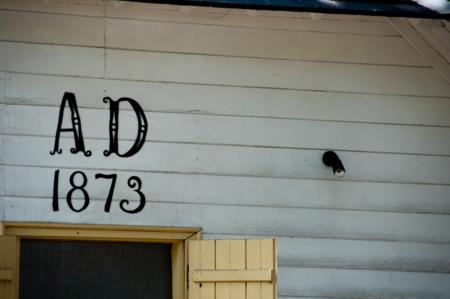Using Common Era instead of A.D.
Q. To mark dates, why are people now using C.E. (the Common Era) and B.C.E. in place of A.D. and B.C., which have been in use for hundreds of years? I was told by a Catholic teacher in our area that this change is intended to foster better relations with non-Christians. This is too "politically correct" for me to accept without further explanation. Please help. (Somerville, New Jersey)
A. The teacher you spoke to is right. The reason some have adopted the use of C.E. rather than A.D. ("In the year of Our Lord" or "Anno Domini") is to ease the minds of non-Christians who might object to this implicit acknowledgement of Jesus as Lord.
Depending on one's perspective, the new terminology has been viewed as an attack on Christianity or simply as an assertion of religious neutrality.
In 2000, the Southern Baptist Convention called it the result of "secularization, anti-supernaturalism ... and political correctness" and encouraged its members to "retain the traditional method of dating and avoid the revisionism."
On the other hand, former UN Secretary-General Kofi Annan (who was himself a Protestant) has said: "The Christian calendar no longer belongs exclusively to Christians. People of all faiths have taken to using it simply as a matter of convenience. There is so much interaction between people of all faiths and cultures -- different civilizations, if you like -- that some shared way of reckoning time is a necessity. And so the Christian Era has become the Common Era."
In 2011, an op-ed piece in the Vatican newspaper L'Osservatore Romano blasted the British Broadcasting Corporation for abandoning the traditional A.D. in favor of C.E. "To deny the historically revolutionary function of the coming of Christ on the earth, accepted even by those who do not recognize him as Son of God," wrote the author, "is enormous nonsense."
Some critics of the change point out that many commonly accepted designations have a basis in religious beliefs. (They note, for example, that "January" comes from Janus, who was the Roman god of gates and of doorways.)
To me, there is a certain silliness to the entire discussion. Even those who opt for the new designation as an ideological protest still adopt the traditional date of the birth of Christ as the basis for numbering the years. (If you really wanted a secular calendar, why not use the founding of Rome as the focal point of human history -- which is what the Roman Empire did for centuries.)
Q. The older I get, the more this is on my mind. I grew up in the Methodist Church but became a Catholic when I married my husband more than 60 years ago. We raised our children in the Catholic Church, and my husband passed away in 2006.
Now, at the age of 84, I feel a strong desire to attend the Methodist Church of my childhood. I don't know that I really want to rejoin that church after all these years; I think it's more just wanting to go to their services a few times. (I have friends who belong to our local Methodist parish, and they would be happy to have me accompany them.)
What do you think of this? Am I just longing for the past, or is it a sign that I am not completely satisfied with the Catholic Church? I don't know that I will act on this wish (my kids would be shocked if I did) but the thought is very often on my mind. (Iowa)
A. To be a Catholic is to be committed to certain core principles of faith. Among them are the centrality of the Eucharist and the conviction that Jesus has entrusted to Peter and his successors the task of guiding the church, with the guarantee of doctrinal purity.
Since you have pledged allegiance to those principles of faith for 60 years, I would find it surprising if you were ready to forsake them now. In my mind it's more likely -- as happens when each of us age -- that you are experiencing a nostalgic longing for some of the experiences and surroundings of the past.
I don't see any harm in your accompanying your friends to an occasional Methodist service and perhaps be reminded of the religious enthusiasm you felt in your youth. But I would think it wise -- perhaps even before you do that -- to talk with a sympathetic priest who might help you to sort out your feelings.
- - -
Questions may be sent to Father Kenneth Doyle at askfatherdoyle@gmail.com and 40 Hopewell St. Albany, N.Y. 12208.
- Father Kenneth Doyle is a columnist for Catholic News Service



















